The OctoPost: Gifts, Beaks, and Airplane Eggs

‘Tis the season to share the joyous news that I have written several books, and if you order from Books Inc., you can get them signed, personalized, and doodled! Leave your request in the order comments, and I’ll do my best.
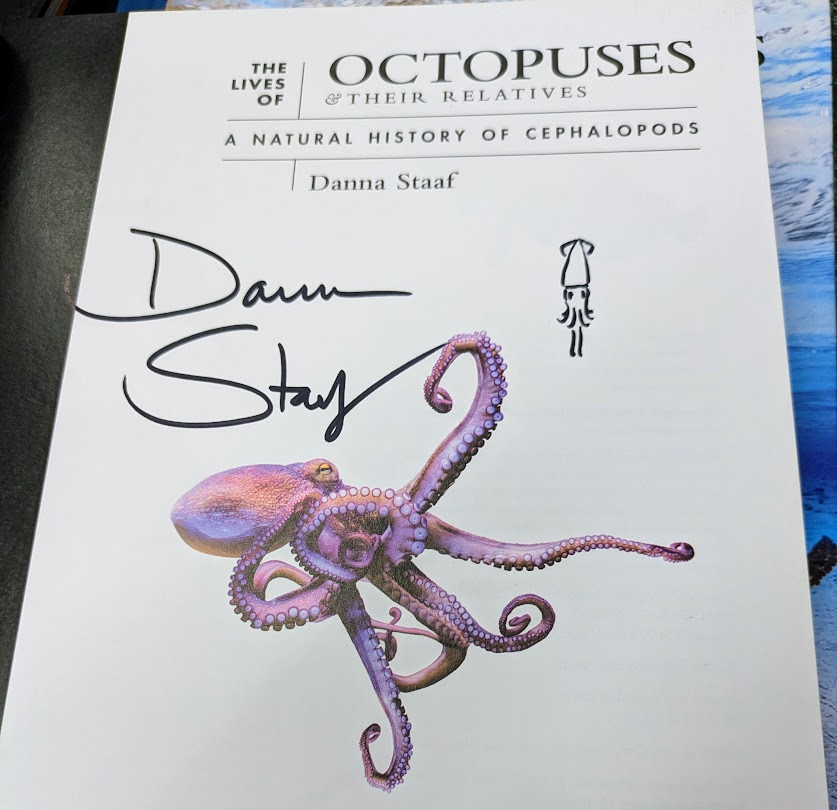
I’ve also designed some nerdy t-shirts, now including the squid size chart from last month’s newsletter. They’re print-on-demand, so you can choose from a variety of clothing styles.
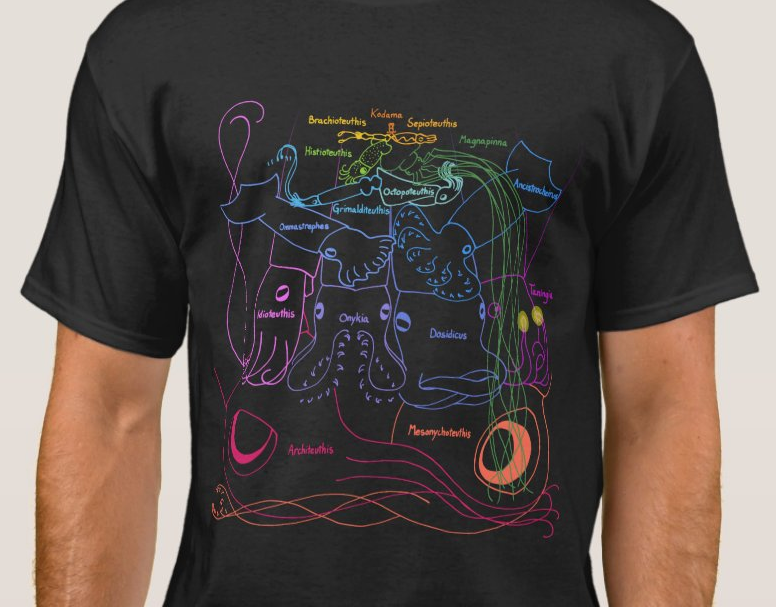
Other sources for superb cephalopod gifts include the fantastically talented scientist-artist Meg Mindlin, the invertebrate artist par excellence Franz Anthony, and, of course, Octopolis, my very favorite octopus-centric post-apocalyptic science fiction comic.
Cephalopod News
Octopus suckers excel at sticking in an environment that’s wet, bumpy, and constantly in motion. That makes them the perfect model for better dentures.
Someone asked me once if cephalopod camouflage is energetically expensive, and I couldn’t find an answer. Now scientists have one: Yes. It really is.
Shoutout to Kalen who asked me this fantastic question: Do octopuses brux? Beak grinding is seen as a sign of contentment in birds, so what about octos? I couldn’t find any direct information, so I played the deduction game. We know that octopus beaks grow in daily increments throughout their lives, and counting these layers is a reliable method of determining an octopus’s age. Although some beak erosion has been observed in wild octopuses, this seems to result from eating hard foods rather than grinding. When octopuses in captivity were fed a soft diet, their beaks were im-peck-able.
Thus, according to the available evidence, octo beaks bite but don’t brux, bro.
My News
Nursery Earth has been translated into Korean! The publisher, Wisdom House, did a beautiful job.
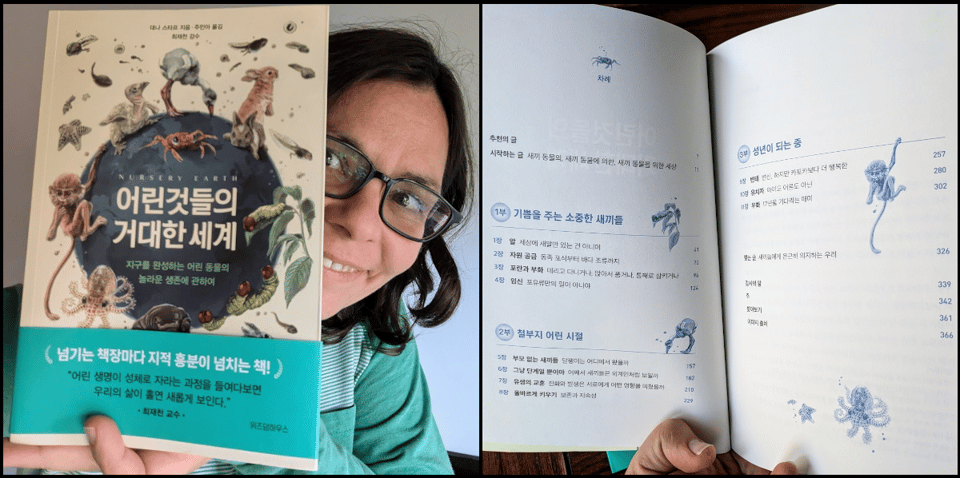
I’m so happy they kept the original cover art. (The artist, Javier Lazaro, sells many gorgeous art prints.)
It also has a wonderful new blurb from Professor Choi Jae-cheon: "When you change your perspective, the world looks different. When you look at mayflies that live only for a day or two as adults but can live in the water for over a year as larvae, cicadas that live as grubs in the ground for 13 or 17 years before suddenly emerging and covering the world, baby moths with faces and gestures like poisonous snakes, your life suddenly looks new."
Funny Pages
My enthusiasm for animal babies and life cycles is too vast to be circumscribed by reality. Thus, some field notebook “observations” on airplane eggs.
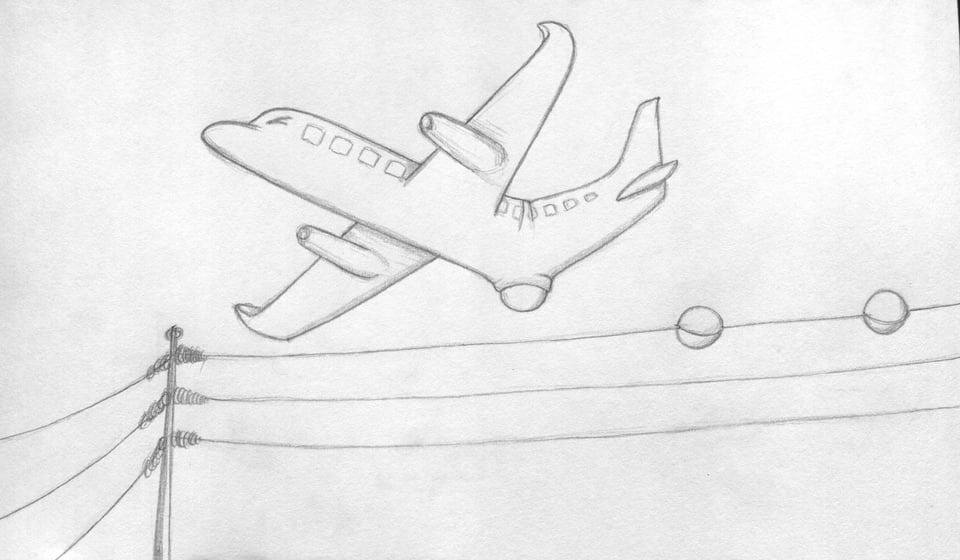
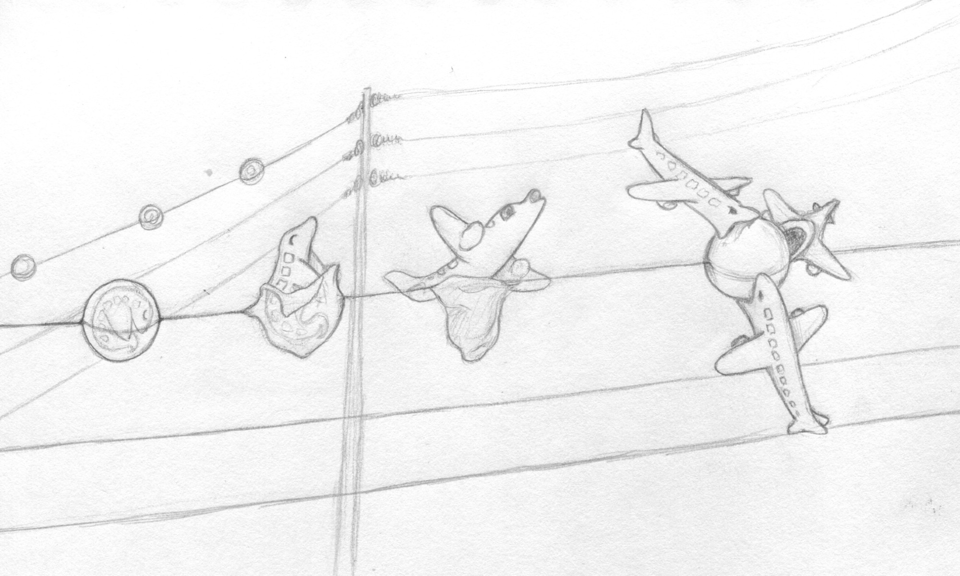
And finally, I want to close the year with a sentiment that’s been much on my mind:
For me, writing is an act of reciprocity with the world; it is what I can give back in return for everything that has been given to me.…This is our work, to discover what we can give. Isn’t this the purpose of education, to learn the nature of your own gifts and how to use them for good in the world?
- Robin Wall Kimmerer, Braiding Sweetgrass
Add a comment: